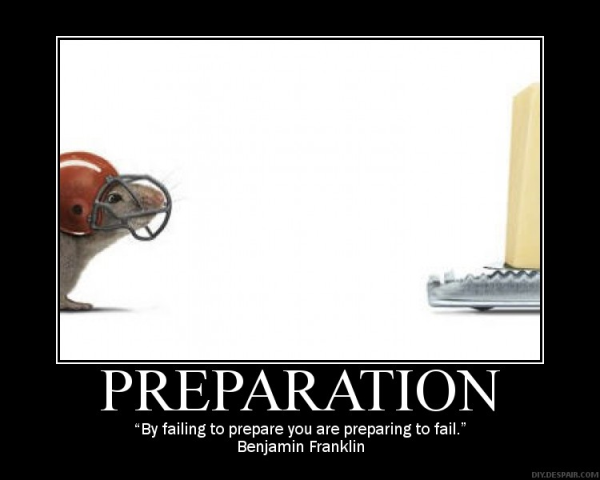Posted by Robert Phelan on Mon, Aug 23, 2010 @ 08:22 AM
If you’ve been buying commercial construction insurance for more than ten years you know that ours(construction insurance industry) is a cyclical business and we have sudden and unpredictable price corrections. For approximately eight out of every ten years, companies who sell business insurance are in a price war. When they all start to bleed badly, they raise prices and you the customer get whacked. Just when you thought life was good i.e. really cheap construction insurance quotes, you’re blindsided with a 50% rate increase. No fun.
I can’t wave a magic wand and eliminate market cycles. However, this focus on TCOR I have been espousing will minimize the upswing in rates for you.
Why?
 By focusing on Total Cost of Risk, you are going to be preventing and mitigating losses. That’s where all the money is. Lost productivity, burdensome claim administration, and large business insurance rate increases all connect back to losses/claims. As I like to say, “Whoever has the lowest losses, wins!”
By focusing on Total Cost of Risk, you are going to be preventing and mitigating losses. That’s where all the money is. Lost productivity, burdensome claim administration, and large business insurance rate increases all connect back to losses/claims. As I like to say, “Whoever has the lowest losses, wins!”
Pretend you’re an underwriter for a moment. Your boss has charged you with the responsibility of managing a book of business and pricing the business insurance policies so the book will be profitable. If you’re smart, what are you going to look for? The construction companies with the lowest losses. Low losses for you equals higher profits for you and your insurance company.
What happens when the market makes a correction and prices go up for everybody? You can’t avoid the correction entirely but you can ride low on the curve. What I mean is that when insurance companies are losing a lot of money and have to start charging more, there is a flight to quality. Getting profitability back has two pieces: one is raising prices and the other is only keeping the construction companies with the lowest loss levels. You want to be one of them.
Those construction companies riding high on the curve get the biggest rate increase and in a worst case may not even be able to buy insurance. The insurance company’s goal is to eliminate all business that is damaging their profitability. Conversely, they want to hang onto their most profitable accounts because they will contribute the most to improving profitability. If you are in this latter category, they don’t want to drive you away but want to attract you. They will do that by offering you the best pricing they can.
Rule #3 – implement every measure possible to reduce claims to their lowest level.
In my next post, I’ll explain more why it’s all about the losses and their prevention.
Posted by Robert Phelan on Fri, Aug 20, 2010 @ 01:56 PM
So now that you know that Total Cost of Risk (TCOR) is the primary criteria to measure, how do you go about it?
If you are going to “begin with the end in mind”, that means you are going to have a plan. I can see your eyes rolling back in your head as you read this. You’re already overwhelmed with work and now some guy is telling you that you have to have a plan to manage your business insurance.
 Remember in Part 1 where I told you to find a Risk Advisor or Agent/Broker who can talk to you about TCOR? Well, If their orientation toward risk management has a TCOR focus, creating and implementing a risk reducing plan will be a core strategy they employ. It’s not about more work for you. It’s simply about finding the right adviser trained and skilled in the concepts of risk management vs. selling insurance policies.
Remember in Part 1 where I told you to find a Risk Advisor or Agent/Broker who can talk to you about TCOR? Well, If their orientation toward risk management has a TCOR focus, creating and implementing a risk reducing plan will be a core strategy they employ. It’s not about more work for you. It’s simply about finding the right adviser trained and skilled in the concepts of risk management vs. selling insurance policies.
If you need heart surgery, you don’t need to know how to perform it. You just have to find someone who does. Same with risk management. This isn’t a new skill you have to develop. You just have to find an advisor who will diagnose, design and implement a risk reducing plan. The reward for you will be much larger long term savings than simply focusing on cheaper insurance.
Rule #2 is to create a long term plan (or have one created for you) to reduce TCOR. Some of the savings will come instantly and some will take longer but this I will guarantee. If you focus on TCOR and have a smart advisor, you will always pay the lowest possible amount for business insurance. I’ll explain in my next post.
Part#1(If you missed it)
Look for Part #3 on Monday 8/23
Posted by Robert Phelan on Tue, Aug 17, 2010 @ 03:42 PM
The workers compensation gurus at NCCI (National Council on Compensation Insurance) have declared a state of emergency. For the calendar year 2009, workers compensation had the largest single year deterioration in profitability in twenty-five years. Premium has declined an alarming 23% over the last two years alone. Combine that with a recessionary economy and negligible investment income and you have the “perfect storm”.
There are still only feint indications that there will be an immediate pricing correction to offset these losses. However, it isn’t too early for Connecticut contractors to prepare for what is certain to be a more punitive pricing environment in the near future.
When business insurance pricing is soft (as it has been since 2002) and underwriting standards are forgotten, every construction company gets a free ride. No matter how bad your losses are, there is always another underwriter standing in line ready to offer cheaper business insurance. Sad but true.
Change is near. Not today and maybe not tomorrow but definitely in the next 12 months. Workers Compensation and other forms of business insurance premiums are going to increase. Here are five things Connecticut contractors can do to be sure your workers compensation premiums (and overall business insurance) remain manageable:
- Focus on Safety – All underwriters believe that past loss experience is a predictor of future loss experience. If you asked them the most important underwriting factor of all, safety would always be #1.
- Focus on who you Hire – Most safety professionals believe that it is unsafe behavior which causes losses not unsafe conditions. Unemployment in construction is high and you have the ability to screen out those applicants who have a tendency to get hurt or who aren’t physically able to do the job. Find a Risk Advisor with the tools to assist you in this process.
- Focus on Training – Everyone in your construction company needs to understand the financial impact of workers compensation claims. Your construction company's success is their success, too. Be sure they understand it and are rewarded for it.
- Focus on stability – Some construction companies make the mistake of changing business insurance companies too often. If your experience has been good, you’ll have some chits to cash in when the market turns. If your experience has been bad, the insurance carrier will want to stick with you to earn their losses back. Loyalty still means something. (Don't shop it around EVERY YEAR!!)
- Focus on your Risk Profile – Imagine that you’re an underwriter of construction insurance. Your Risk Profile is everything that you would look at in a construction company to tell you whether or not that company is likely to have a loss in the future. This is everything from loss experience, to how you conduct safety meetings, to the jobs you do and more. Creating the proper Risk Profile could take a year or more. Hire a Risk Advisor today to help you design and implement an improvement plan.
The market will turn. It always does. Stay ahead of your competition by preparing for the inevitable.
Posted by Robert Phelan on Thu, Apr 01, 2010 @ 07:43 AM
 I know. We are still in a recession and you're more worried about getting your next job than you are about how to survive a hardening insurance market. However, chances are highly likely that the construction market will still be depressed when insurance prices spike. Here are seven steps you can take to be sure your company doesn't get hammered when the market turns:
I know. We are still in a recession and you're more worried about getting your next job than you are about how to survive a hardening insurance market. However, chances are highly likely that the construction market will still be depressed when insurance prices spike. Here are seven steps you can take to be sure your company doesn't get hammered when the market turns:
1) Have a safety culture firmly in place and supported by senior management. This is what every underwriter looks at first. Even if you have had a rough patch with significant losses, insurance underwriters will be willing to hear your story if you are sincerely committed to focusing on safety and working with them to turn it around.
2) Understand your contracts, both upstream and downstream. Insurance companies don't want clients who get left holding the bag, particularly if it's due to sloppy language in a contract. It's important that you transfer as much risk as you can and not accept risk that isn't covered by insurance.
3) Make sure your website accurately represents what your company does. Don't brag about jobs that may look alarming to an underwriter. Like that one time your Rigging Company trailered a space shuttle!
4) Do brag on your website about safety awards your company has received as well as your commitment to a safe workplace.
5) Commit to a return-to-work program for all injured employees. Insurance underwriters want to know that workers comp claims will be minimized.
6) Develop a Risk Management Philosophy that you can articulate. Insurance underwriters want to know that you aren't just out to buy cheap insurance. They want to know you care about preventing and minimizing losses. Here's ours
7) Work with your broker or Risk Advisor to write a three year plan to improve your company in all areas of risk management. This will truly blow the underwriters away.
This may sound like a lot of work and it probably is if you attempt it by yourself. Test drive our services or hire us as your Risk Advisor and we'll have you looking like a shiny new penny to the underwriters. Your premium may still go up but you'll be on the low side and beating your competitors when the construction market improves. If you want to avoid the market swings of the insurance industry entirely, we have a great solution for that too. And here is a special report about 'How the Smartest Contractors Pay the Least for Insurance'.